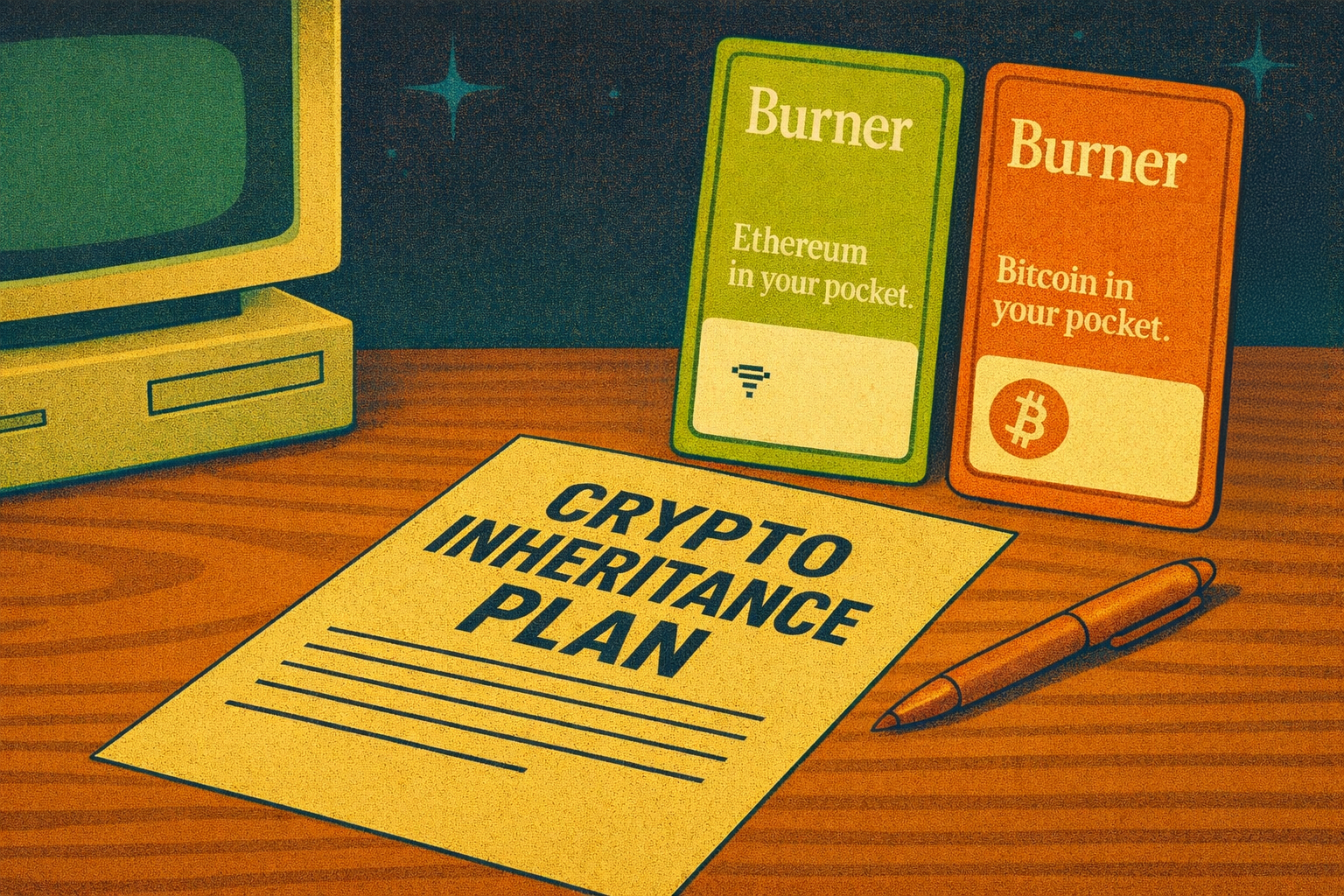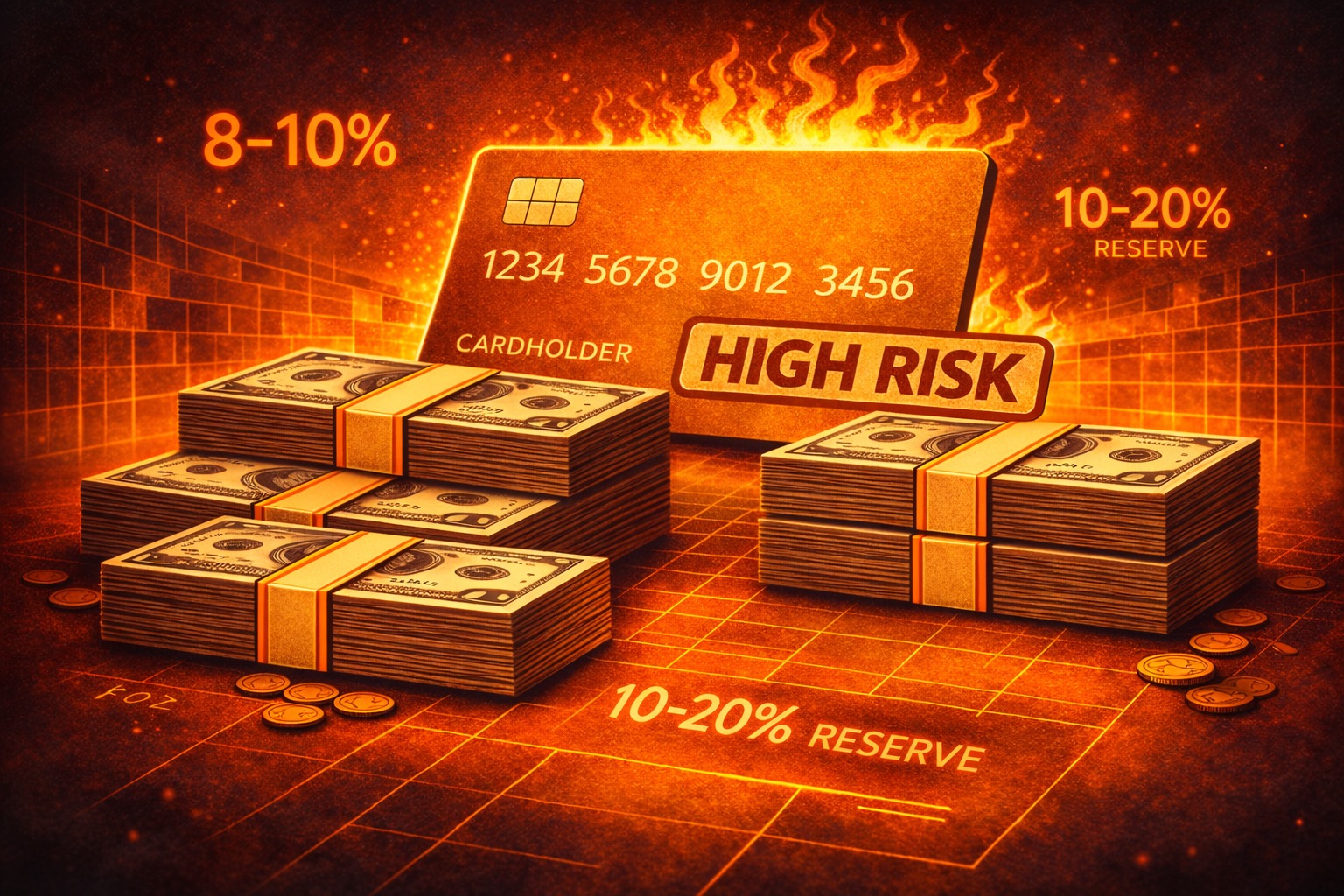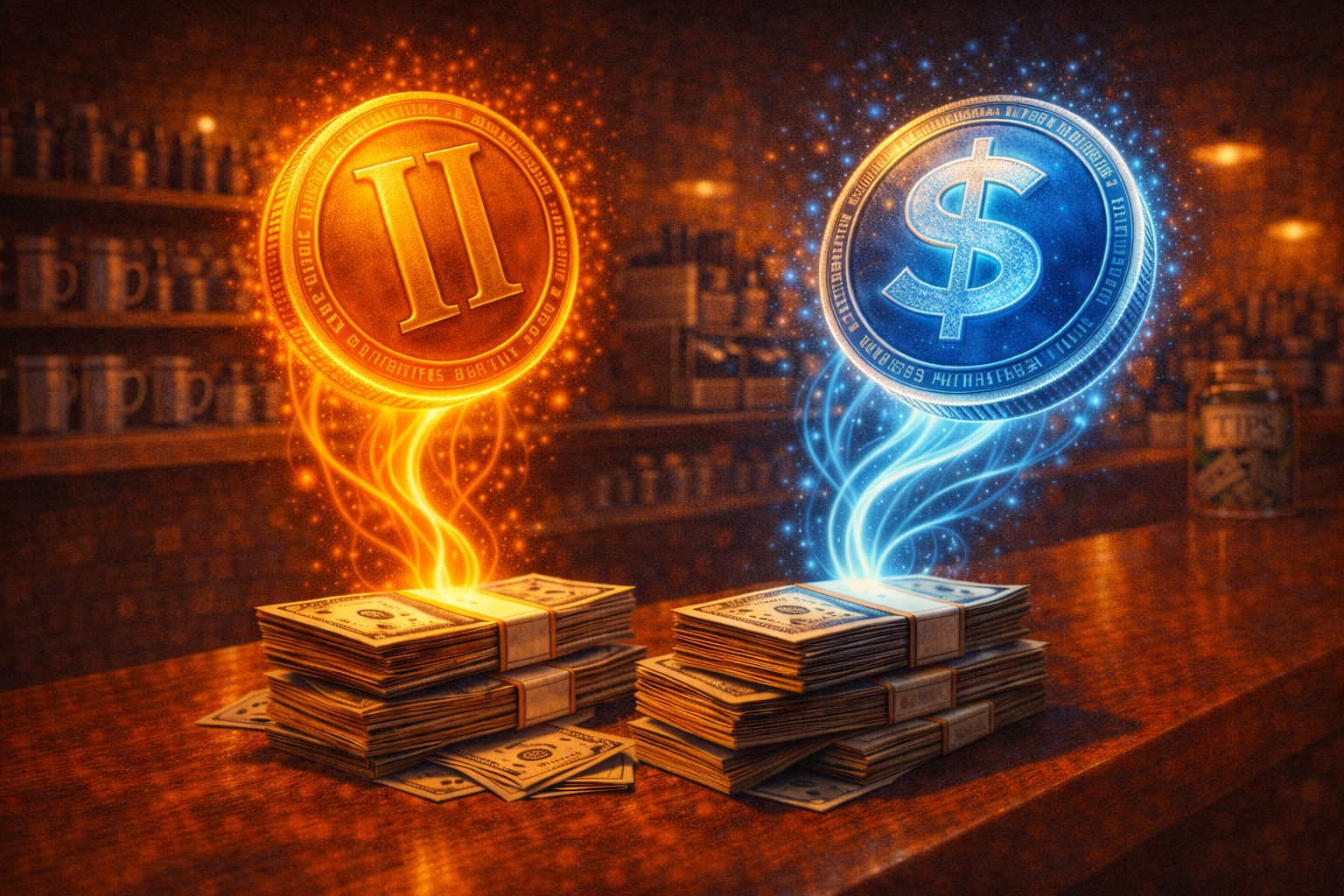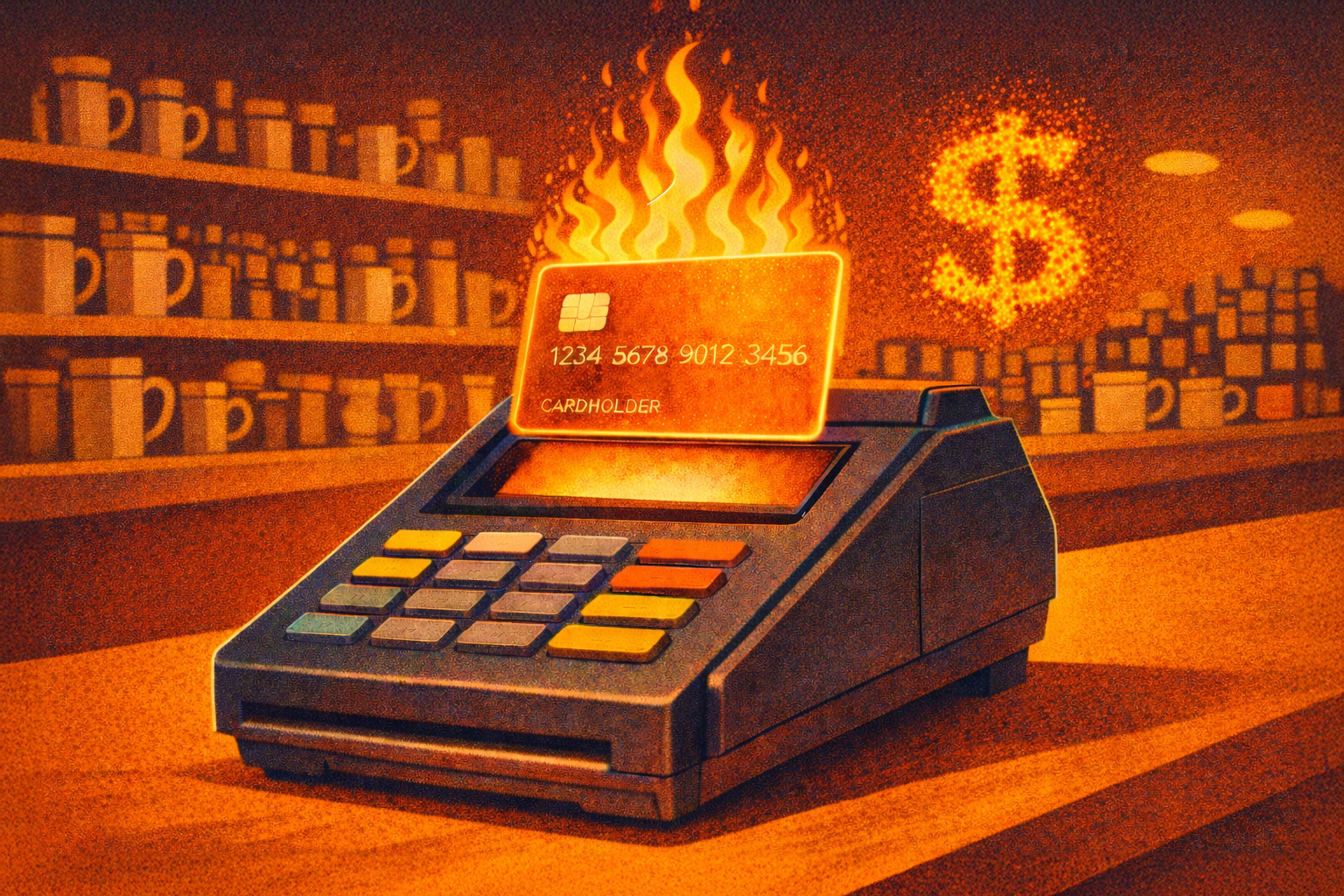Don’t Let Your Crypto Die With You: Burner Makes Inheritance Simple
Back to articles
When planning for the future, most people think about wills, trusts, and life insurance. But if you hold cryptocurrency, there’s one more thing to consider: how to pass it on.
Crypto isn’t like other assets. There’s no recovery hotline, no password reset, and no “forgot my keys” button. If your private keys are lost, your crypto is gone. Permanently.
Poor planning has already led to billions in lost crypto. But a few simple steps today can protect your digital legacy and spare your loved ones unnecessary stress.
That’s where Burner comes in. Built for everyone from beginners to experts, Burner is a secure, seedless hardware wallet that makes inheritance simple. It’s designed for real-world handoff — easy to store, easy to back up, and easy to pass on.
Why Crypto Inheritance Is So Easy to Get Wrong
Unlike handing over a set of house keys or wiring funds from a bank, passing down crypto is uniquely risky. There’s no paper trail, no customer support, and no built-in backup. If your heirs don’t have the private keys, the assets are gone—whether it’s $50 or $500,000.
Most wallets and exchanges don’t offer inheritance options. There’s no “next of kin” button, no account recovery process, and no margin for error. This is exactly what makes crypto inheritance different. It requires planning, documentation, and a clear handoff.
What Makes Crypto Inheritance Challenging
-
No paper trail
Without clear documentation, your heirs may not even know what you owned or where to find it.
-
Private keys or seed phrases required
If these are lost or forgotten, the assets are permanently unrecoverable.
-
No standard inheritance process
Most wallets and exchanges don’t support next-of-kin access, legal claims, or executor tools.
Burner: The Perfect Solution for Crypto Inheritance

Most crypto wallets weren’t designed for inheritance. Burner was. It’s a secure, seedless wallet built for peace of mind, whether you’re passing down a few hundred dollars or a sizable digital estate.
With Burner, everything lives on a single physical device. There are no seed phrases, no cloud backups, and no accounts to manage. Your crypto stays offline and is protected by a PIN, reducing risk from phishing and online attacks.
Because it’s so simple, non-technical heirs can use Burner with ease. If they can use a smartphone, they can use Burner. And since it’s affordable, you can make duplicate devices and store them in separate locations for added protection.
Inheritance doesn’t have to be complex or stressful. Burner makes crypto inheritance simple, secure, and accessible.
Why Burner is Ideal for Inheritance
-
Seedless Security
No recovery phrase to lose or explain. Just a PIN and a physical device.
-
Single Device Simplicity
Avoid confusion with multiple accounts or logins. Everything lives in one Burner wallet.
-
Offline Protection
Keeps private keys safe from phishing, malware, and online attacks.
-
Easy and Affordable Backup
Create multiple Burner copies and store them in distinct locations for peace of mind.
-
Heir-Friendly Design
Clear instructions and intuitive UX make it easy for anyone to access and manage funds.
-
Scalable for Any Estate
Works just as well for modest portfolios as it does for large digital holdings.
- Open Interfaces and Tools
Crypto Inheritance and Taxes

In the U.S., the IRS classifies cryptocurrency as property, which means it’s taxed similarly to stocks or real estate. When your heirs inherit crypto, they typically receive it at its current market value, reducing their future capital gains tax burden if they choose to sell.
Depending on the size of your estate, inheritance or estate taxes may also apply. And if your heirs are located in different states or countries, local tax laws could affect how those assets are treated.
The best way to stay ahead of tax implications is to work with an estate planning attorney or financial advisor. They can help you structure your crypto inheritance plan to minimize liability and ensure your legacy transfers smoothly.
Key Tax Considerations for Crypto Inheritance
-
Crypto is treated as property, not currency
The IRS classifies cryptocurrency the same way it does stocks or real estate. It is subject to property-related taxes, not income tax, and must be properly valued and documented as part of your estate.
-
Heirs receive crypto at a “stepped-up” market value
When beneficiaries inherit crypto, they typically receive it at its fair market value at the time of inheritance. This step-up reduces potential capital gains tax liability if they choose to sell later.
-
Estate and inheritance taxes may still apply
If the total value of your estate exceeds certain thresholds, federal or state estate or inheritance taxes could be triggered. These rules vary depending on your location, and crypto counts toward your estate’s total value.
-
Cross-border complications are real
If your heirs live in another state or country, local tax laws and reporting requirements may affect how the assets are taxed or accessed. What’s simple in one jurisdiction could be complex in another.
-
Proper documentation is essential
You must provide clear instructions about wallet access, PINs, asset location, and estimated values. Without documentation, your heirs could face delays, tax penalties, or even total loss of access.
-
Talk to an estate-planning attorney
A crypto-aware estate attorney can help you legally structure your inheritance plan through a will, trust, or other method. This helps reduce taxes, avoid probate complications, and ensure your wishes are carried out.
Educating Beneficiaries

Even the most carefully planned crypto inheritance can fail if your heirs don’t know how to access your assets. That’s why education is just as important as storage and security.
Your beneficiaries need to understand what a Burner is, where it’s stored, and exactly how to use it. Written instructions should be simple, non-technical, and complete. Include everything from the Burner’s physical location to the PIN and step-by-step directions for sending or transferring funds. For added clarity, label the Burner and include a printed photo so they know exactly what to look for.
Most importantly, talk to your heirs. Walk them through the process in person if possible, or provide a clear explainer they can reference later. Burner is designed to be intuitive, even for people with no crypto experience, but a little guidance can make a big difference.
How to Prepare Your Heirs for Crypto Inheritance
-
Document everything clearly
Write down how to access the Burner wallet, including the PIN, device location, and steps to unlock or transfer funds.
-
Use simple, plain-language instructions
Avoid jargon or technical explanations. Pretend you’re writing for someone who has never used crypto before.
-
Include visual references
Take and print a photo of the Burner. Label it and store it alongside your written instructions to remove any confusion.
-
Create backups and test all Burners
Make one or more duplicate Burners and store them in separate, secure locations. Then test each Burner by sending a small amount (e.g. $1) to it and withdrawing the funds to a software wallet to confirm everything works as expected.
-
Have a conversation in advance
Let your heirs know what to expect, where to find everything, and how it all works. This builds confidence and prevents surprises during an already stressful time.
-
Leverage Burner’s simplicity
Because Burner is designed to be easy to use, your heirs won’t need special tools or apps. Having access to the Burner and its PIN are all they need to access the funds.
Regular Plan Reviews and Updates

Crypto evolves quickly, and your inheritance plan needs to keep up. What worked a year ago may not reflect your current assets, wallet setup, or personal situation.
If you’ve added new holdings, updated your PIN, or moved your hardware wallet, those changes should be reflected in your documentation. Life changes like marriage, divorce, or having children are also key moments to revisit your plan.
Reviewing your inheritance setup once a year ensures everything stays accurate and aligned with your wishes. It also prevents confusion for your heirs during a time when clarity is most needed.
How to Keep Your Crypto Inheritance Plan Up to Date
-
Review your assets and instructions annually
Set a yearly reminder to update Burner locations, PINs, written instructions, and the overall structure of your plan, as needed.
-
Revisit your plan after major life events
Marriage, divorce, the birth of a child, or the passing of a beneficiary should all prompt a full plan review.
-
Test your Burners periodically
Have your heirs (or a trusted contact) walk through the plan and test each Burner by sending a small amount of crypto to it and retrieving it to a software wallet. This ensures everything works as expected and the instructions are easy to follow.
-
Track changes to your crypto holdings
If you’ve acquired more crypto, switched wallets, or changed platforms, make sure your documentation reflects those changes.
-
Monitor legal and market updates
Crypto laws and estate regulations can change. Stay informed or check in with your estate planner to adjust as needed.
-
Ensure your beneficiaries are still accurate
Review who will inherit your assets and make sure their contact details, roles, and instructions are still relevant.
Access Risk Management

One of the biggest risks in crypto inheritance is loss of access. If your heirs can’t locate the device or don’t know how to unlock it, the assets are gone for good. Unlike traditional bank accounts, there’s no customer support or password reset.
That’s why clear instructions and secure storage are essential. Your plan should document where the wallet is kept, how to unlock it with the PIN code, and what steps your heirs should follow to access the funds. It’s just as important to protect the card itself from damage, theft, or misplacement. Storing multiple Burners in separate, secure locations, such as home and bank, adds redundancy without complexity, ensuring access is never tied to a single point of failure.
Best Practices for Access Management
-
Securely document access instructions
Write down the wallet’s location, PIN, and step-by-step instructions for using it. Use plain language and keep a copy in a safe place. -
Store the Burner in a protected location
Burner is a durable device, but it still needs protection from accidents and loss. Storing it in a secure place like a fireproof safe, safety deposit box, or locked storage container helps protect it from theft, fire, or water damage. -
Consider creating backups
Create duplicate Burners that mirror the original and store them in separate, and secure locations. This adds redundancy without adding complexity. -
Review the physical condition and access regularly
Check once a year that the Burner(s) are still functional, safely stored, and that heirs still have access to the instructions.
Advanced Options for Crypto Inheritance

Burner offers a simple and secure solution for most people, but some estate plans may require additional complexity or oversight. If you have multiple beneficiaries, a large digital portfolio, or a preference for legal structuring, there are more advanced options to consider.
Multi-signature wallets can increase security by requiring multiple approvals before any transaction is made. This setup works well for shared control between heirs, executors, or legal representatives. Burner can be one of the approved devices in a multi-sig configuration, combining its ease of use with added protection.
Another option is to incorporate your crypto into a formal trust. Trusts can help you avoid probate, maintain privacy, and ensure assets are distributed according to your wishes. Custodial services may also offer inheritance features, though they rely on a third party to safeguard your funds.
Advanced Inheritance Tools to Consider
-
Multi-signature wallets for shared control
These wallets require approvals from multiple private keys before any transaction can go through. They add redundancy and reduce the risk of unilateral access, making them ideal for families, legal teams, or group estates. One prominent example is Safe (formerly Gnosis Safe), a well-audited, widely adopted multi-signature smart wallet. -
Trusts for legal structure and privacy
A trust can legally manage your crypto on behalf of your heirs. Trusts bypass probate, preserve confidentiality, and follow specific instructions but they require legal setup and ongoing management.
Final Thoughts
Crypto inheritance doesn’t have to be complex or risky. With the right tools and a few minutes of planning, you can ensure your digital assets live on and support the people you care about.
Burner makes that possible. By replacing fragile seed phrases with a simple PIN and a physical device, Burner gives you full control over how your crypto is stored, backed up, and passed down. Whether you’re managing a small portfolio or a larger estate, Burner offers peace of mind that your legacy won’t be lost.
Take the first step today. With Burner, inheritance is no longer an afterthought. It is simple, secure, and ready when your family needs it most.
FAQ: Simple Crypto Inheritance with Burner
❓ What if my Burner wallet is lost?
If you’ve planned properly, losing one Burner device won’t mean losing your crypto. You can set up a second Burner with the same wallet address and store it in a separate secure location. As long as your heirs have access to either device and the PIN, your assets remain safe.
❓ Can non-technical heirs use Burner?
Yes. Burner is designed to be simple enough for anyone to use, even without prior crypto experience. With no seed phrase to manage and only a PIN to remember, heirs can access your funds using clear, written instructions.
❓ Is Burner suitable for small and large estates?
Absolutely. Whether you’re passing on a few hundred dollars or a large portfolio, Burner scales without added complexity. You can use a single wallet or distribute assets across multiple devices for organization or risk management.
❓ How should I explain crypto inheritance to my heirs?
Use plain language and keep things simple. Document the wallet’s location, the PIN, and clear step-by-step instructions. Include a photo of the Burner device so your heirs know what to look for. Talking them through it in advance is ideal.
❓ What happens if the Burner device is damaged?
Storing your Burner in a fireproof safe, safety deposit box, or similar protective environment helps prevent potential damage. If you’ve created a second Burner and stored it in a separate secure location, your heirs can use that backup to access the same wallet.
❓ Can Burner be included in a legal will or trust?
Yes. You can include your Burner wallet in your estate documents just like any other asset. Be sure to provide clear instructions within your will or trust about where the device is stored and how to access it.
❓ What if I have multiple heirs?
You can share access to a single Burner, divide assets across multiple wallets, or use a multi-signature setup where two or more people must approve a transaction. Burner can be part of a multi-sig solution, like Safe.
❓ Can I update my Burner wallet if my crypto portfolio changes?
Yes. Simply send new assets to the wallet’s public address as your holdings evolve. Make sure to keep your documentation updated so your heirs know what to expect.

Get your Burner
What to read next
Back to articlesHigh-Risk Merchant Accounts: Why You're Paying 10% Processing Fees
High-risk merchant accounts typically charge 8-10% in processing fees plus rolling reserves and constant termination risk. Learn why high-risk business credit card processing is so expensive and how stablecoins eliminate chargebacks, rolling reserves, and industry-based penalties.
Lower Fees, No Chargebacks: Why Stablecoins Beat Card Payments
Card payments work, but the fee structure was never built for small businesses. Every swipe passes through banks, networks, and processors, each taking a cut before the money reaches you. Stablecoins work differently: digital dollars that move directly from customer to merchant, settling in seconds instead of days. This post explains what stablecoins are, how they compare to cards, and why more merchants are paying attention. It's the second in a series on rethinking payments.
The Hidden Cost of Credit Card Payments for Small Businesses
Swipe fees are quietly eating into small business margins. Every time a customer taps a card, a portion of the sale is routed through banks, card networks, and processors before it reaches your business. This post breaks down how card payments actually work, why processing fees typically land between 2.5% and 3.5%, and why those costs scale with revenue rather than expenses. It's the first post in a multi-part series on rethinking payments for small businesses, from the hidden mechanics of card fees to how stablecoins introduce a fundamentally different payment rail and what that shift means for merchants, resellers, and global commerce.


